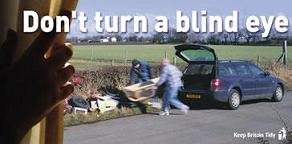
There has been much talk in recent weeks about how to involve local people in deicisions affecting them. The entire philosophy depends on how much responsibility MP's are prepared to relinquish down to County and Town Halls. This is a step in the right direction, however we will watch this process carefully to see whether this new policy will really come to real powers and funding returned to Town Halls.
Story:
The government has backed plans to transfer some powers from central to local government, giving more control to councils.
Local government minister Phil Woolas said the government would support Conservative MP Nick Hurd's Sustainable Communities Bill.
The bill was passed unopposed by MPs in its third reading the Commons, although Woolas urged for government amendments instead of a Tory "compromise".
It had received cross-party and community backing but faced early opposition from the government.
Woolas raised "serious concerns" over the original content of the bill, describing it as a "centralising measure".
But he told MPs on Friday: "I genuinely believe the bill we have been debating will change the relationships in British politics.
"I am proud to have been the minister that helped it through Parliament."
The legislation is aimed at helping tackle "ghost towns" affected by poor transport and derelict shops.
It will see "action plans" developed to help sustain these communities.
"When it comes to shaping the future of the communities we live in, we must accept local people know best. We must give them greater power over decisions," Hurd told MPs.
Under the original bill, which builds on the Local Government Bill, Whitehall departments would be required to work with councils in making decisions.
And town halls would have been given powers to inject cash into what residents considered priority areas.
But the Tory compromise would have seen councils identifying these priority areas and recommending the transfer of funds to the secretary of state.
Hurd said that this would help businesses and local services.
The original bill would also have seen citizens panels set up to ensure community involvement and steps taken to ensure all sections of society - particularly ethnic minorities, older people and the disabled - had a say in decision making.
Hurd added: "There will be a disappointment if there is a feeling out there that the government is diluting this bill."
Liberal Democrat Julia Goldsworthy stressed the need to move "this issue forward".
"Ultimately if we do not, we are going to see nothing but raised expectations," she said.



